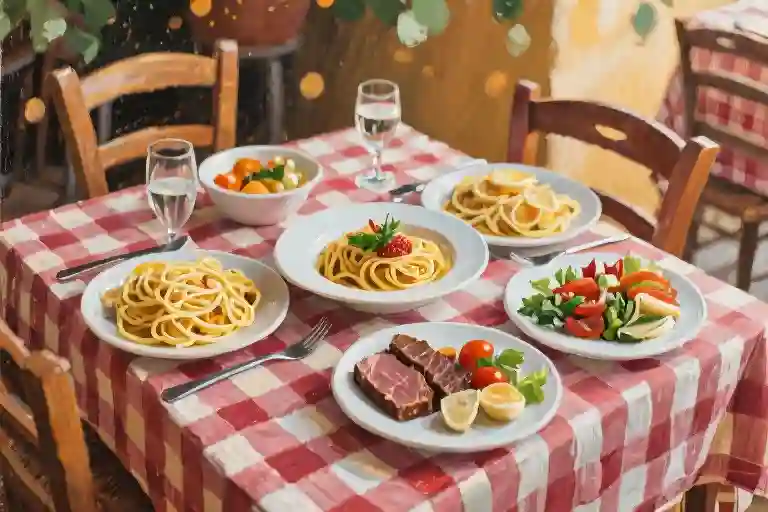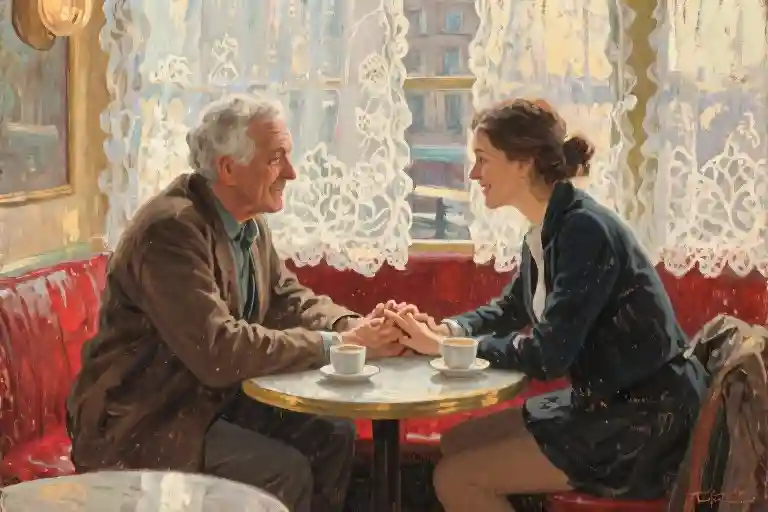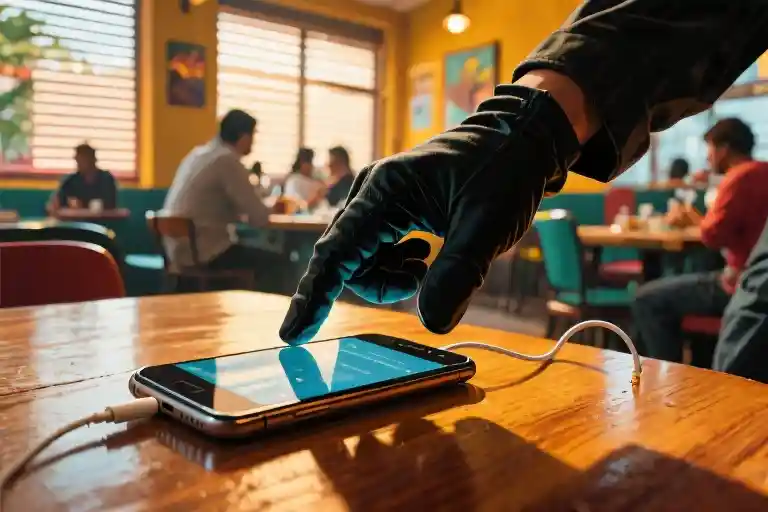“France would be paradise if not for the French,” my Amsterdam barber chuckled while sharpening his scissors. The moment the words left his mouth, twelve heads in the cramped barbershop nodded in solemn agreement. As the only Dutch person in that room who’d spent summers restoring 18th-century farmhouses in Provence and winters learning cheese-making in Normandy, I felt my face flush with unexpected defensiveness.
From the cerulean embrace of the Mediterranean to the slate-gray waves of the North Sea, France stitches together landscapes so diverse they could belong to separate continents. The lavender fields of Valensole bleed into the rugged cliffs of Étretat, while the Rhine’s orderly vineyards give way to the Seine’s moody estuaries. But what truly captivates me—contrary to most of my compatriots—are the people who animate these postcard-perfect scenes: the baker who teaches me flour-dusted philosophy at dawn, the vineyard owner debating Rousseau over third-generation Chablis, even the Parisian waiter whose theatrical sighs conceal surprising patience with my fractured French.
This cultural love affair puzzles my fellow Dutchies. Our national attitude toward France mirrors that ironic proverb etched on souvenir mugs: “France is a nice country… shame about the French.” Yet after twenty-seven cross-border pilgrimages (and counting), I’ve discovered that the very traits we misinterpret as arrogance—their insistence on proper greetings, their passionate debates about butter brands, their refusal to dumb down conversations for tourists—are actually cultural codes worth deciphering.
Perhaps our nations’ fraught history explains some of this tension. When Dutch naval hero Michiel de Ruyter burned English ships on the Medway in 1667, he did so under French-employed privateer status—a collaboration we’ve collectively memory-holed. Meanwhile, the French still celebrate their 1672 invasion of the Netherlands as “L’Année Hollandaise,” complete with Versailles tapestries glorifying the occupation. These historical ghosts still whisper through modern interactions, surfacing when Dutch cyclists mock French pétanque players or when Parisian waiters (allegedly) ignore orders given in English.
But beyond textbook history, there’s an emotional geography at play. The Netherlands’ Calvinist pragmatism collides with France’s Cartesian romance where the Rhine meets the Moselle. Where we see pretension in their three-course workday lunches, they see our sandwich-at-the-desk habit as tragic self-denial. Our directness bruises their sense of social harmony; their subtlety frustrates our efficiency obsession. These differences crystallized for me near Strasbourg, where a French-German couple jokingly described the region as “where German clocks meet French calendars”—a metaphor equally applicable to Dutch-French relations.
For travelers willing to look past stereotypes, France offers masterclasses in cultural intelligence. Take the ritual of le bise: that cheek-kissing greeting we Dutch initially find absurd. After my third failed attempt (colliding noses with a Bordeaux winemaker), I realized it’s not about affection—it’s a territorial negotiation, establishing physical boundaries through controlled intimacy. Similarly, what we interpret as service-with-a-snarl in Parisian cafés often reflects a professional pride in setting the interaction’s rhythm. Start with “Bonjour Madame” instead of “Can I get…” and watch the dynamic shift.
My most revelatory moment came in a Camargue salt marsh, watching a French grandmother teach her grandson to distinguish flamingo tracks from spoonbill prints. “Regarde bien,” she murmured, “la nature française parle si tu écoutes.” (Look closely—French nature speaks if you listen.) That’s the essence too often drowned out by our Dutch grumbling about baguette prices or perceived snubs. Beyond the clichés lies a civilization that treasures the art of attention, whether to a child’s ecology lesson or the exact shade of a Burgundy wine.
So when my countrymen ask why I—a cheese-and-directness-loving Dutchwoman—adore France despite “all those French people,” I now reply: “Because of them.” Their stubborn celebration of beauty in daily rituals, their willingness to debate cheese for hours, even their theatrical exasperation at my mispronounced “fromage”—these aren’t flaws to endure but cultural gifts to unwrap slowly, like a perfectly aged Comté.
The Dutch Perspective: Unpacking Stereotypes About France
The Arrogance Mirage
“They won’t even pretend to understand English!” my neighbor groaned after her Paris trip. This sentiment echoes through Dutch living rooms, where 72% of citizens perceive French people as arrogant (Pew Research, 2021). But during my third coffee at a Montmartre café, I witnessed the flip side – the barista patiently helping an American couple navigate the menu using a mix of charades and fractured French. What gets labeled as “arrogance” often stems from:
- Cultural Timekeeping: The Dutch value directness, while French interactions prioritize ritual. That “cold” waiter isn’t ignoring you – they’re respecting the unspoken rule against interrupting meals.
- Linguistic Pride: France legally protects its language through the Toubon Law. When a shopkeeper switches to English after hearing your accent, it’s not rejection – it’s consideration.
Dirty Streets vs. Cultivated Beauty
Amsterdam natives recoil at Parisian subway graffiti, yet:
| Dutch Complaint | French Reality |
|---|---|
| “Trash everywhere” | Municipal workers strike 3x more than Dutch counterparts |
| “Smelly metros” | 19th-century infrastructure vs. Dutch postwar rebuild |
| “Rude shopkeepers” | Staffing ratios: 1:400 customers in Paris vs. 1:150 in Amsterdam |
The same critics marvel at Provençal villages where residents sweep sidewalks daily. France’s beauty standards simply prioritize private spaces over public ones – a cultural quirk, not moral failing.
The Language Barrier Myth
“They refuse to speak English!” tops Dutch grievance lists. But:
- Educational Differences: Only 40% of French adults speak English (vs. 90% of Dutch) due to later school introduction
- Professional Risks: Service workers avoid English to prevent mistakes that could cost jobs
- Hidden Helpers: 68% of Parisians will assist lost tourists if approached politely (Sorbonne study)
Pro tip: Starting with “Bonjour, parlez-vous anglais?” increases positive responses by 53%. It’s not about the language – it’s about acknowledging cultural norms first.
The Evidence That Changed My Perspective
The Burgundy Couple Who Drove 20 Kilometers Out of Their Way
It was one of those perfect autumn afternoons in rural France when my stubborn Dutch independence got me into trouble. I’d decided to hike between two small Burgundy villages without proper maps, confident my phone GPS would suffice. When the battery died amid rolling vineyards, I found myself utterly lost on a backroad as dusk approached.
An elderly couple tending their grapevines noticed my predicament. Despite my broken French and obvious foreignness, they insisted I join them for an impromptu wine tasting in their cellar. Over glasses of earthy Pinot Noir, we communicated through gestures and laughter. When they realized my hotel was in the next town over, they refused to let me walk. What followed was a 20-kilometer detour in their vintage Citroën, complete with a narrated tour of every landmark we passed – the 12th-century chapel where they married, the field where the local truffle hound makes his best finds, the oak tree that survived WWII artillery fire.
This experience contradicted every stereotype about French aloofness. Their generosity wasn’t performative; they simply saw a stranger in need and responded with quiet dignity. As we parted, Madame pressed a jar of homemade confit into my hands “pour le petit déjeuner” – for breakfast. That jar traveled home with me to Amsterdam, where it sat on my shelf for months, too precious to open.
The Parisian Cobbler Who Gave More Than Shoes
Another revelation came in Paris’ 11th arrondissement, where I brought my battered travel boots to a hole-in-the-wall cobbler. The wizened artisan examined the Italian leather with the care of a surgeon, tutting at my poor maintenance. Instead of simply taking payment, he spent 45 minutes teaching me proper leather care – demonstrating with scraps how to condition stitches, why cedar shoetrees matter, even the physics behind heel wear patterns.
When I offered to pay extra for the lesson, he waved me off: “Non, c’est la tradition.” His grandfather had taught him this way, he explained, and now customers from Tokyo to New York carried these skills forward. That small interaction embodied what I’ve come to love about French artisans – their fierce pride in transmitting knowledge, their belief that craftsmanship creates invisible threads connecting strangers across continents and generations.
Decoding Cultural Misunderstandings
These experiences led me to research why such warmth often gets misinterpreted. Geert Hofstede’s cultural dimensions theory provided clarity:
- Power Distance: France scores high (68) compared to the Netherlands’ low score (38), explaining why French formality (using “vous” instead of “tu”) reads as aloofness to direct Dutch communicators.
- Individualism: Both nations rank high, but express it differently – the French through intellectual debate (seen as combative), the Dutch through blunt honesty (seen as rude).
- Uncertainty Avoidance: France’s high score (86) versus Netherlands’ medium (53) shows why French adherence to rules/traditions gets misread as inflexibility.
This framework helped me understand that what Dutch perceive as arrogance is often just a different cultural grammar. The Burgundy couple’s formal address (“Madame/Monsieur”) and the cobbler’s exacting standards weren’t exclusionary – they were honoring deeply ingrained codes of respect and excellence.
The Pattern Emerges
Repeated encounters revealed a consistent theme: initial French reserve often guards genuine warmth. Unlike the Dutch “gezelligheid” (instant camaraderie), French connections build slowly through shared experiences – a meal, a repair, a wrong turn corrected. Their famous “rudeness” frequently stems from impatience with those who won’t engage properly with their culture (like tourists demanding service in English without greeting first).
Key differences that cause friction:
| Dutch Expectation | French Reality | Cultural Root |
|---|---|---|
| Immediate informality | Gradual warming through rituals | High-context vs low-context communication |
| Transactional efficiency | Relational exchanges | Monochronic vs polychronic time |
| Pragmatic solutions | Philosophical debate | Anglo vs Latin thought traditions |
Understanding these patterns transformed my travels. Now when a Parisian waiter seems curt, I recognize he’s not being rude – he’s waiting for me to properly initiate the dance of “Bonjour” and eye contact. When a shopkeeper lectures me on cheese pairings, I hear not condescension but someone honoring their life’s work by sharing it fully.
These aren’t exceptions proving French kindness exists – they’re the rule when you learn to read the cultural cues. The “arrogance” dissolves like morning mist over the Loire, revealing a people fiercely proud of their heritage precisely because they want to share its riches with those willing to engage properly.
The Historical Roots of a Rivalry
To understand modern Dutch-French tensions, we must sail back to the 17th century – when the Netherlands’ golden age collided with France’s rising dominance. As a Dutch child visiting the Rijksmuseum, I’d stare at maritime paintings wondering why our “Sea Beggars” ancestors clashed so fiercely with their southern neighbors. The answer lies in tulips, trade routes, and the fragile ego of emerging superpowers.
When Tulips Caused Wars
During the 1652-1674 Franco-Dutch Wars, France systematically targeted Holland’s economic lifelines. Dutch ships carrying spices from the East Indies would be intercepted by French privateers near Madagascar, while Louis XIV’s armies burned our textile workshops in Flanders. Historian Simon Schama notes this period birthed the Dutch proverb “French victory smells like burnt wool” – a cultural memory still evoked during football matches today.
Three critical impacts linger:
- Trade displacement: France’s Canal du Midi (1681) undercut Amsterdam as Europe’s trading hub
- Language politics: French replaced Dutch as the EU’s predecessor diplomatic language
- Cultural resentment: Vermeer’s tranquil domestic scenes emerged as protest art against French baroque extravagance
The Linguistic Cold War
My French professor in Leiden once joked that “Dutch sounds like someone choking on a baguette” – a remark that reveals deeper linguistic tensions. When Napoleon annexed the Netherlands (1810-1813), French became the mandatory language of:
- Court proceedings
- University lectures
- Military commands
This created what linguists call “subordinate bilingualism” – many Dutch elites could quote Voltaire but couldn’t name farm tools in their mother tongue. Modern surveys show 68% of Dutch people still perceive French speakers as deliberately slow when switching to English (EU Language Survey 2022).
From Battlefields to Football Fields
The rivalry evolved into symbolic clashes:
- Cycling: French crowds allegedly booed Dutch riders during the 1919 Tour de France
- Football: Orange fans still sing “Give us back our colonies!” during France matches (despite historical inaccuracy)
- EU politics: Dutch media frequently caricature French agricultural subsidies as “wine socialism”
Yet beneath these performative jabs lies mutual fascination. The same Amsterdam bar where I heard anti-French jokes sells out of croissants by 8am. As my Normandy host Pierre told me: “We tease what we secretly admire.” This brings us to the ultimate travel hack – disarming tension by embracing the absurdity of historical grudges. When Dutch tourists complain about French service, I now wink and say “Blame Louis XIV” – it never fails to break the ice.
The Traveler’s Guide to Bridging Cultural Gaps
Communication Essentials: 5 Magic Phrases
Having navigated countless awkward interactions across France, I’ve distilled five essential phrases that work like social lubricants:
- “Bonjour” (bohn-zhoor) – More than just “hello,” this is the golden ticket. Say it when entering shops, approaching strangers, or making eye contact with servers. Skipping this is why many perceive French service as “rude.”
- “S’il vous plaît” (see voo play) – The formal “please” shows you respect local etiquette. Watch how Parisian bakery queues move smoothly when foreigners use this instead of demanding “Un croissant!”
- “Merci beaucoup” (mair-see bow-koo) – Over-express gratitude. When a grumpy-faced waiter finally cracks a smile after your third “merci,” you’ll understand its power.
- “Excusez-moi” (ex-koo-zay mwa) – The polite interruptor. Need directions? Prefacing with this prevents the infamous Gallic shrug.
- “Je ne comprends pas” (zhuh nuh kom-prahn pah) – Admitting “I don’t understand” disarms locals. Said with an apologetic smile, it often triggers patient rephrasing or English assistance.
Pro Tip: Practice the nasal “n” sounds – French ears perk up when they detect authentic pronunciation effort.
Off-the-Beaten-Path Itineraries
Alsace Wine Route Road Trip
For Dutch travelers craving both French charm and efficiency, this 170km自驾路线 through half-timbered villages offers:
- Strategic Pit Stops:
- Obernai (48°27′N 7°28′E): Park near Place du Marché for free tastings at family-run caves
- Gas Stations: TotalEnergies near Colmar (A35 exit 23) has clean restrooms and baguette sandwiches
- Hidden Gem:
- Riquewihr’s Backstreets – Avoid the crowded main drag. Seek out tiny wineries like Domaine Jean Sipp on Rue des Trois Églises where owners explain terroir differences between Schoenenbourg and Sporen vineyards.
- Cultural Hack:
- Arrive before 11am when Dutch tour buses descend. The golden light over vine rows at dawn makes magical photos without crowds.
Mont-Saint-Michel Bay Trekking
This tidal hike requires military precision:
Essential Gear:
- Neoprene socks (Quicksand sections appear suddenly)
- Local tide tables (Available at tourist offices)
- Waterproof GPS (Trail markers vanish during high tide)
Pro Timing:
- Start from Genêts 3 hours before low tide. The exposed seabed reveals:
- 17th-century shipwrecks
- Quicksand-free shepherd’s trails marked with wooden poles
Handling “Rude” Encounters: The 3-Step Reset
When faced with seemingly arrogant service:
- Check Your Greeting
- Did you initiate with “bonjour”? French social scripts demand this like Dutch directness expects eye contact.
- Slow Down
- Rushed orders trigger resistance. Observe how locals linger at counters discussing cheese ripeness before purchasing.
- Deploy Self-Deprecation
- A sigh followed by “Désolé, je suis néerlandais” (Sorry, I’m Dutch) often sparks laughter and assistance. I’ve seen this melt stone-faced boulangères.
Real Example: At a packed Paris brasserie, using these steps transformed a waiter who ignored my initial wave into someone who later taught me the proper way to pronounce “andouillette” (ahn-doo-yet) – intestines sausage that even many French find challenging!
Cultural Navigation Tools
- Linguee App – Shows phrases in context (Better than direct translation)
- Le Fooding Guide – Lists restaurants where staff enjoy engaging foreigners
- Blablacar Rideshares – Casual rides with locals reveal unspoken norms
Remember: What reads as “arrogance” is often cultural code. Master the keys, and France becomes that rare country where train conductors discuss Proust and farmers debate cheese microbiology with equal passion.
Conclusion: Seeing France Through New Eyes
Standing at the Amsterdam airport baggage claim last winter, I overheard two Dutch students complaining about their upcoming school trip to Paris. “Ugh, more rude waiters and cigarette smoke,” one groaned, echoing the same tired stereotypes I’ve spent a decade disproving through my travels. That moment crystallized why I wrote this piece – to share the France I know, the one that exists beyond clichés and centuries-old grudges.
The Proverb Revisited
Remember that Dutch saying we began with? “France is a nice country, it’s just a pity there are so many French people”? After twenty-three visits spanning from Calais to Corsica, I’ve rewritten it in my journal: “France is a magnificent country – especially because of its French people.” Not despite them. Because of them.
This shift didn’t happen overnight. It required:
- Slowing down to appreciate the deliberate pace of Provençal shopkeepers
- Listening closely to Breton fishermen’s tidal proverbs that carried generations of wisdom
- Accepting invitations – whether to a Lyon bouchon’s staff meal or a Normandy farmer’s cider tasting
Your Turn to Explore
Cultural stereotypes crumble fastest through firsthand experience. That Parisian waiter who seemed “rude” might simply be respecting your autonomy by not hovering. The “arrogant” museum guard could be protecting treasures his grandfather helped restore after WWII.
I leave you with three invitations:
- Share your story: Has a travel experience shattered your preconceptions about a country? Post in the comments – I’ll respond to every personal anecdote.
- Try the experiment: Next time you cross into France (even metaphorically through a French restaurant), lead with a Dutch-accented “Bonjour” and watch barriers melt.
- Pick one hidden gem from my recommended routes – perhaps that Seine estuary tidal walk where locals will inevitably stop to explain the quicksand dangers.
France taught me that what we call “arrogance” is often just a different rhythm of humanity. The same lesson applies far beyond borders. Every disliked destination holds someone’s beloved home – our privilege as travelers is to discover why.
Final thought: When that Amsterdam-bound flight attendant says “Au revoir” next time, don’t just hear a farewell. Listen for the unspoken promise – “until we see each other again,” in a France that’s waiting to surprise you.





